
Action Center
Ways to Get Involved
From raising awareness to starting fundraisers, from playing games to sending letters to Congress, there are many ways for you to help end world hunger.
Learn about Global Hunger
Sign up to get email updates on the latest news and stories in the fight against world hunger.

How much do you know about the causes of global hunger? Let’s find out! The answers may surprise you.

Get inspirational stories and bite-sized facts and news updates on fighting global hunger.

Take action to fight hunger
Sign petitions and send emails to your representative in Congress to advocate for ending world hunger.

Leverage your influence and raise awareness by reposting WFP’s content on social media.

Find open positions where you can use your skills, experience and passion to help us fight hunger.

Help Raise money to help end hunger
With the Freerice trivia game, 10 grains of rice are donated every time you answer a question correctly.

Help send food every time you sit down to eat. Use your phone to “share your meal” with someone in need.

Empower your social network to fight hunger by creating a personal fundraiser on Facebook.

Donate Today
Make a direct impact today by donating to send life-saving food to vulnerable people around the world.
Be Part of a Global Movement
There are 17 Sustainable Development Goals agreed upon by more than 190 member states of the United Nations, and there’s a reason Zero Hunger is at the top of the list: If people don’t have enough to eat, they won’t have the strength to reach the other goals.
Click on an icon to see how food fuels each goal.
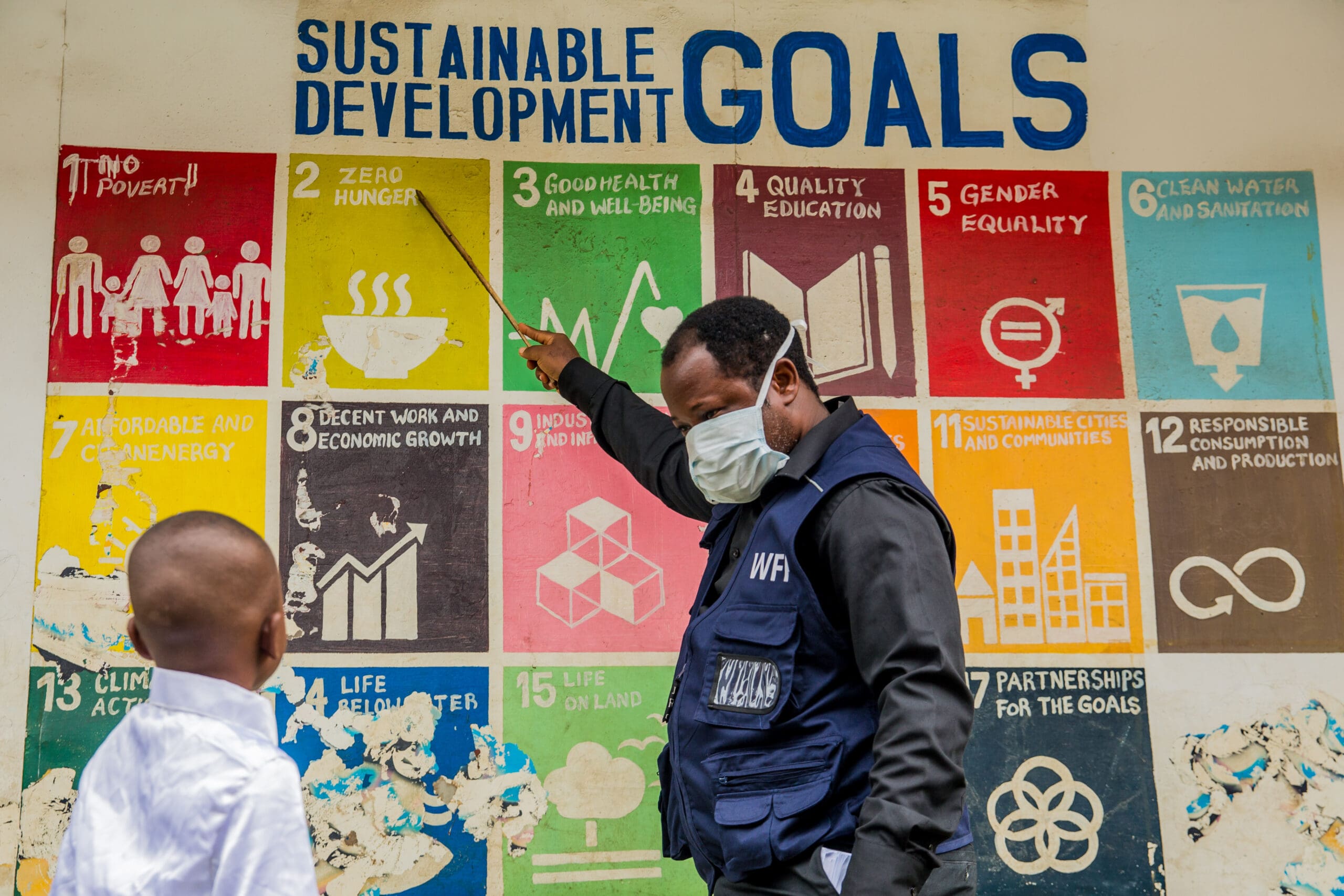
Goal 1: No Poverty
In 2019, WFP distributed over $2 billion dollars to nearly 28 million people so they could buy food and other basics necessities in their local markets. Cash has a magical multiplier effect: It helps strengthen local economies, encourages small entrepreneurs to start business, and – when it’s given to women – promotes gender equality.
Goal 2: Zero Hunger
The United Nations World Food Programme (WFP) is the largest humanitarian organization on the planet, feeding over 100 million people in 80 countries. From emergency relief to long-term resilience initiatives, we’re the world’s first responder. For this work, WFP received the 2020 Nobel Peace Prize.
Goal 3: Good Health & Wellbeing
WFP doesn’t just deliver food, we also administer highly specialized nutrition treatments and operate malnutrition prevention programs. In 2019 we reached over 16 million high-risk pregnant women, breastfeeding mothers and young children with nutrition interventions.
Goal 4: Quality Education
WFP operates the largest school meals program in the world, feeding more than 17 million children throughout the year. We also support existing school feeding programs in 65 countries, benefitting an additional 39 million children.
Goal 5: Gender Equality
Gender equality is at the core of our programs, and more than 50% of the people we serve are women and girls. For example, in our small-scale farmer training programs, over half of the participants are women. If they had equal access to resources, these female farmers could feed as many as 150 million people.
Goal 6: Clean Water & Sanitation
WFP helps people build their self-reliance through skills training and public works projects. This includes thousands of miles of irrigation and wells for the poorest communities. Last year, we built or repaired over 50,000 community assets like these. And during the pandemic, we rolled out hand washing and sanitation stations at all of our food distribution points.
Goal 7: Affordable & Clean Energy
Where we work, most of the foods people eat require cooking and water often needs to be disinfected by boiling. The vast majority of hungry people do so by using wood to make fire, putting them at all kinds of risks. WFP promotes modern forms of energy, like stoves and solar electricity, and is implementing 106 different energy programs in 36 of its country offices.
Goal 8: Decent Work & Economic Growth
More than half of the world’s hungriest people are small-scale farmers, and globally, they form the majority of people living in poverty. We work tirelessly to connect these farmers to local markets, which we’ve done in over 40 countries. We also purchase more than $37 million dollars worth of food from small-scale farmers every year, supplying them with a steady source of income.
Goal 9: Industry, Innovation & Infrastructure
Innovation is at the core of our work. We use mobile phones to transfer money to refugees. We use iris scans to identify beneficiaries. We use hydroponic farming to grow food in impossible places. We use drones and amphibious vehicles to reach isolated communities. We use blockchain to deliver cash. We never stop looking for more effective ways to ensure nobody goes hungry.
Goal 10: Reduced Inequalities
Social protection (aka safety nets) is the best tool we have to cope with the risks that vulnerable people face, such as poverty, poor health and food insecurity. WFP works closely with local governments to implement and strengthen programs like these, especially related to emergency response, school meals and nutrition.
Goal 11: Sustainable Cities & Communities
By definition, to build a world with Zero Hunger we must build food systems that are sustainable. WFP tackles this on multiple fronts, including planting drought-resistant crops, training farmers in sustainable farming techniques, and rebuilding communities to withstand extreme weather. Always, our goal is to help people become self-sufficient.
Goal 12: Responsible Consumption & Production
We deliver 24 billion lifesaving meals every year, which adds up to a lot of packaging. Reducing our footprint has taken many different forms — from using fewer colors on packaging to avoid ink pollution, to optimizing the thickness of cardboard boxes, to removing a metallic layer in our food packets to prevent the release of toxic fumes if burnt. We are committed to delivering food in the most responsible ways possible.
Goal 13: Climate Action
WFP is at the forefront of extreme weather, and we work hard to help people adapt and cope with their changing climates. From early warning systems and crop insurance to land rehabilitation and dam building. In the last decade, almost half of our emergency and recovery operations have been in response to climate-related disasters, at a cost of $23 billion.
Goal 14: Life Below Water
In coastal communities, fishing is a primary source of income and food. But when storms strike, fisheries often become flooded and people lose access to fishable shoreline. WFP builds ponds, dams and fish farms to restore natural water ecosystems and provide families with a sustainable source of nutrition.
Goal 15: Life on Land
WFP’s Food Assistance for Assets (FFA) initiative teaches people to build or restore community assets that will improve their long-term food security. Local men and women work on projects like roads, wells and bridges in exchange for food, cash or food vouchers. Last year we invested $610 million in these activities and rehabilitated an area of land twice the size of Singapore.
Goal 16: Peace, Justice & Strong Institutions
WFP was awarded the 2020 Nobel Peace Prize in recognition of our efforts to combat hunger, to help build a world free of conflict and to prevent the use of food as a weapon of war. We know that wherever there is conflict, there is hunger. And where there is hunger, conflict often follows. WFP is there before, during and after the upheaval to help communities build back stronger.
Goal 17: Partnerships for the Goals
More than 190 member states signed on to the Sustainable Development Goals in 2015, and WFP is active in more than 80 of them. We interface with hundreds of local, national and international organizations – all working towards the same collective vision. Each of our efforts supports the others’ to build a cleaner, healthier, more equitable future.
How to Reach Zero Hunger
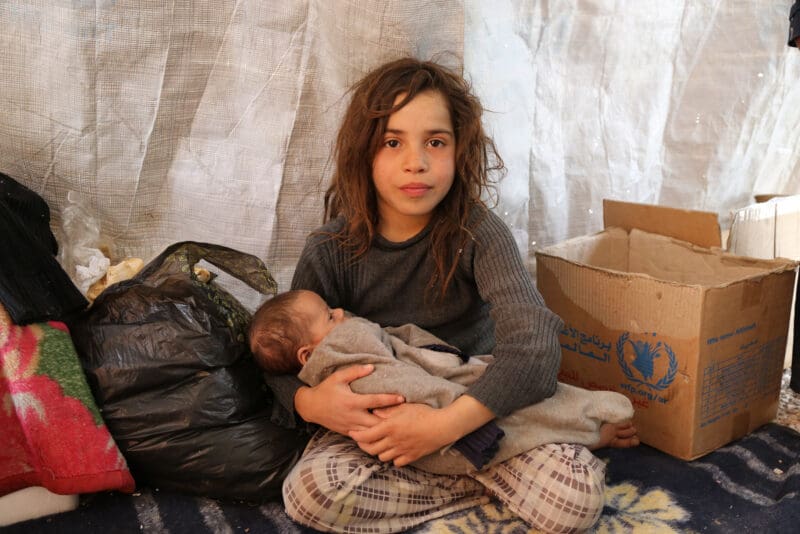
Step 1
Protect the Most Vulnerable
To realize the full potential of our global economy, governments must expand social protections for the most vulnerable people in it. These safety nets (think food stamps, Medicare and social security) are some of the best tools we have to promote equitable economic growth. Safety nets raise the purchasing power of the poorest people which in turn creates demand for products and services. Demand generates new jobs and jump-starts local economies. Investing in safety nets isn’t just the right thing to do; it makes good business sense.
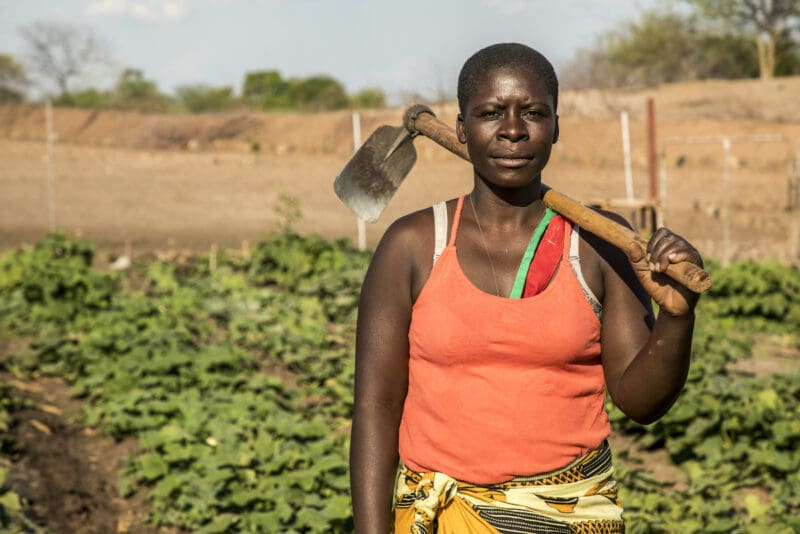
Step 2
Improve Rural Infrastructure
Access to affordable, nutritious food for everyone — all 8 billion of us — depends on making our supply chains more efficient and sustainable. We must innovate and invest in farm-to-market programs that connect the world’s small farmers to local economies. This means improving rural infrastructure like roads, bridges, irrigation systems, means of transportation, food storage and electrification. These improvements will ensure farmers can feed their families, reach consumers and earn an income.
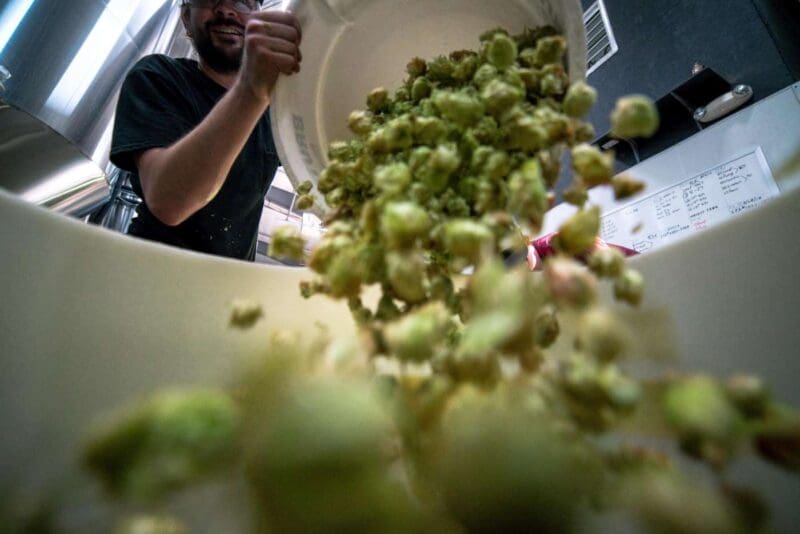
Step 3
Reduce Food Waste & Loss
About one third of all the food we produce for human consumption each year is lost or wasted. This isn’t just a travesty for hungry people, it costs the global economy nearly $1 trillion annually. In high-income countries, food is often wasted at home. In low-income countries, it is lost before it even reaches the plate due to extreme weather, poor storage or because farmers cannot get their goods to market. If we could recover all the world’s lost and wasted food, we could feed every hunger person twice over.
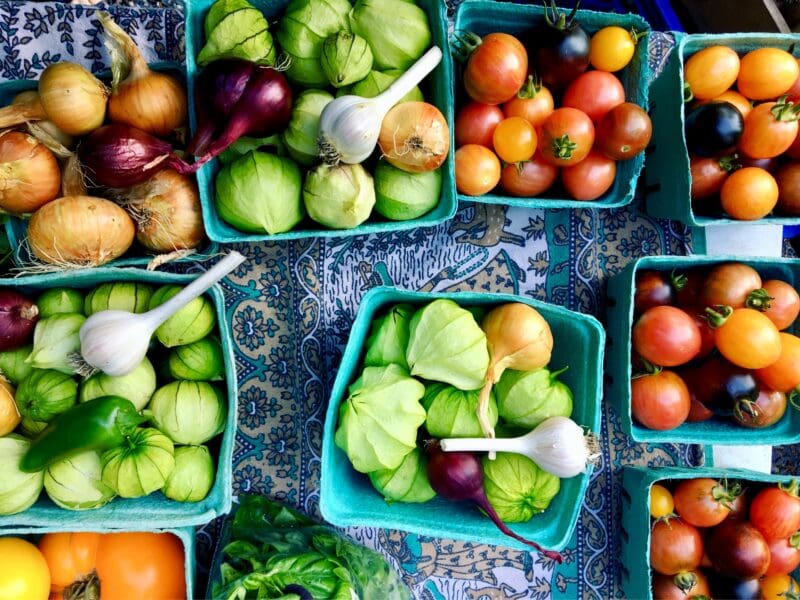
Step 4
Increase Biodiversity & Sustainability
Around the world today, just four crops (rice, wheat, corn and soy) represent 60% of all calories consumed. This overdependence on a few plants and animals for food is risky in numerous ways. In order to cope with the challenges of climate change, food availability and food access, we must help farmers grow a more diverse range of crops and livestock. That means teaching farmers new techniques, equipping them with modern tools, and educating communities about the nutritional importance of eating a wide range of foods.
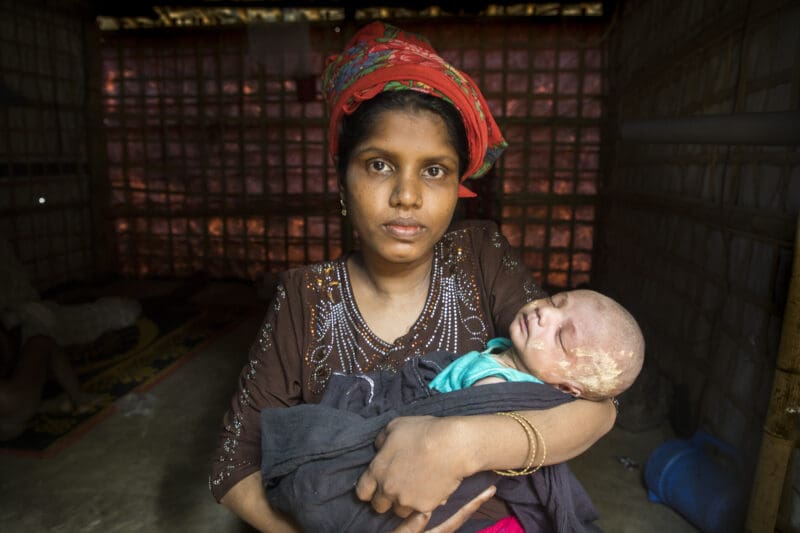
Step 5
Prioritize Children & Nursing Mothers
Nothing is more important to the development of a child than good health and nutrition, particularly in the first 1000 days of life (from conception until the age of two). To prevent stunting and to promote healthy development, we must ensure that children and nursing mothers have access to the required nutritious foods.




